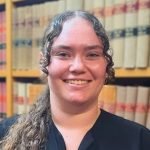On 7 April 2025, Deputy President Bell of the Fair Work Commission delivered a judgement in a case involving a practising solicitor that highlights the importance of integrity and honesty in the legal profession. The case related to a young Melbourne based solicitor, Mitchell Fuller, who filed an application for unfair dismissal against his former employer, Madison Branson Lawyers.
The relevant background to the case is that t Mr Fuller called in sick to work on Friday 5 April and Monday 8 April 2024. It was later discovered by his employer that he had travelled interstate to attend the AFL Gather Round in Adelaide. After finishing work on Thursday 4 April 2024, Mr Fuller flew to Adelaide. The morning of Friday 5 April, Mr Fuller emailed his employer stating, “I had a tough time sleeping last night and not feeling up to coming into the office.” He then met up with friends and enjoyed a weekend of fun at the football, beach and pub.
On the morning of Monday 8 April, Mr Fuller sent another email to his employer stating: “don’t think I can hac taking public transport quite yet.” He then road tripped with his friends from Adelaide to Melbourne before returning to work on Tuesday. Mr Fuller did not obtain a medical certificate for Friday; however, he gave his employer a statutory declaration asserting he was sick and unable to speak to his regular doctor. In relation to Monday, he did obtain a medical certificate from an online provider and produced it to his employer. His employer discovered three months later that Mr Fuller had lied about his sick leave, and he was dismissed on 4 August 2024.
Deputy President Bell dismissed the unfair dismissal claim and made some findings in this case that could have severe implications on Mr Fuller’s professional standing as a practising solicitor. One of the more significant findings was that Mr Fuller had knowingly made a false statutory declaration to his employer. The Deputy President declared that this type of conduct “renders a person liable to perjury.” The Deputy President also found that Mr Fuller had given false evidence to the Commission during the hearing of the application. The Deputy President proceeded to comment that a solicitor “ought to be acutely aware of the seriousness” of making a false declaration, lying to the Commission and the implications of such behaviour.
The Deputy President found that Mr Fuller’s conduct when the firm discovered that he was lying was unacceptable, instead of engaging in the real issue of the serious allegation, he was arguing that his conduct was not harmful to the firm’s reputation. The Deputy President then observed that “an allegation of dishonesty is serious and when made against a solicitor is more so. The allegation, if established, had the potential to call into question Mr Fuller’s fitness to practise as a lawyer.”
In summing up the case, the Deputy President concluded that “Mr Fuller’s conduct and attitude was utterly incompatible with his ongoing employment as a solicitor at the firm, where integrity and honesty are paramount.”
These findings and comments from the Deputy President point to a potential breach of the Australian Solicitor Conduct Rules 2012 (ASCR). The ASCR is in place to ensure that all Australian solicitors uphold high standards of professional and ethical conduct when acting in their capacity as a legal practitioner. Rule 4.1.2 of the ASCR states that a solicitor must be honest and courteous in all dealings in the course of legal practice.
Deputy President Bell’s findings in this matter cannot be taken lightly as it suggests a breach of rule 4.1.2. Given the seriousness of the Deputy President’s findings, it is likely that Mr Fuller will face a further inquiry and investigation from the Victorian Legal Services Board, the regulator of Solicitors in Victoria. Mr Fuller could even potentially face disciplinary action if the Board finds that he has breached his professional obligations under the ASCR.
This case serves as a powerful reminder to all legal practitioners that the legal profession demands integrity and honestly in all professional situations from the courtroom, interactions with clients to being honest with your employer. This incident for Mr Fuller may not only have cost him his job, but it may also be detrimental to his future legal career.










